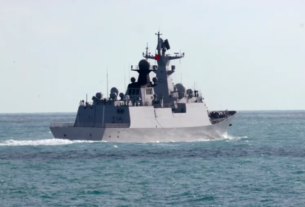Swiss officials are discussing possible changes to the country’s strict arms export laws. The debate has intensified as European nations push Switzerland to allow the re-export of Swiss-made weapons to Ukraine.
“Our neutrality does not mean we should do nothing,” Swiss Defense Minister Viola Amherd said. She argues that current restrictions limit Switzerland’s role in global security.
Switzerland has long maintained a policy of neutrality. The country’s laws prohibit the sale of weapons to nations involved in active conflicts.
European allies want Switzerland to lift these restrictions. Countries such as Germany and Denmark have asked for permission to send Swiss-made arms to Ukraine.
Swiss law requires buyers to agree not to re-export weapons. This rule has blocked the transfer of Swiss-made ammunition and equipment to Ukraine.
Parliament is now considering revisions to these laws. Some lawmakers argue that Switzerland must adapt to changing global security threats.
Supporters of the change say Switzerland should align with its European partners. They believe a more flexible policy would strengthen ties with NATO members.
Opponents argue that changing the rules would weaken Swiss neutrality. They warn that allowing arms exports to conflict zones could damage Switzerland’s reputation.
Swiss voters remain divided on the issue. Some believe maintaining neutrality is essential, while others support more involvement in European defense efforts.
Ukraine has repeatedly asked Switzerland to adjust its policies. Ukrainian officials say Swiss-made weapons are needed to defend against Russian attacks.
The Swiss government has increased sanctions on Russia. However, it has resisted direct military involvement in the conflict.
European nations have criticized Switzerland’s stance. They argue that blocking arms exports benefits Russia.
Switzerland is under pressure to redefine its role in global security. The government faces growing calls to take a stronger position.
The Swiss defense industry has also raised concerns. Companies argue that strict export rules hurt business and limit international cooperation.
Swiss weapons manufacturers support easing restrictions. They say more flexible policies would allow them to compete globally.
The debate has sparked discussions about Switzerland’s place in Europe. Some officials believe closer cooperation with NATO could improve national security.
Switzerland is not a NATO member but works closely with the alliance. Military exercises and intelligence-sharing programs already exist.
The Swiss public remains cautious about military involvement. Many citizens fear that changing export laws could lead to deeper entanglement in conflicts.
Neutrality has been a key part of Swiss foreign policy for centuries. The country has avoided military alliances and direct participation in wars.
Lawmakers must decide whether traditional neutrality can be maintained. Some argue that global security challenges require a new approach.
The government is expected to present proposals in the coming months. Parliament will debate possible revisions before making a final decision.
Any major change could require a national referendum. Swiss law allows citizens to vote on significant policy shifts.
Switzerland has adapted its neutrality policy in the past. The country has adjusted financial and diplomatic policies during international crises.
The outcome of this debate could impact Switzerland’s global standing. European allies will be watching closely for any policy shifts.
For now, arms export rules remain unchanged. The government must balance neutrality with increasing pressure from international partners.
The decision will shape Switzerland’s role in future conflicts. Lawmakers must weigh tradition against evolving security challenges.




